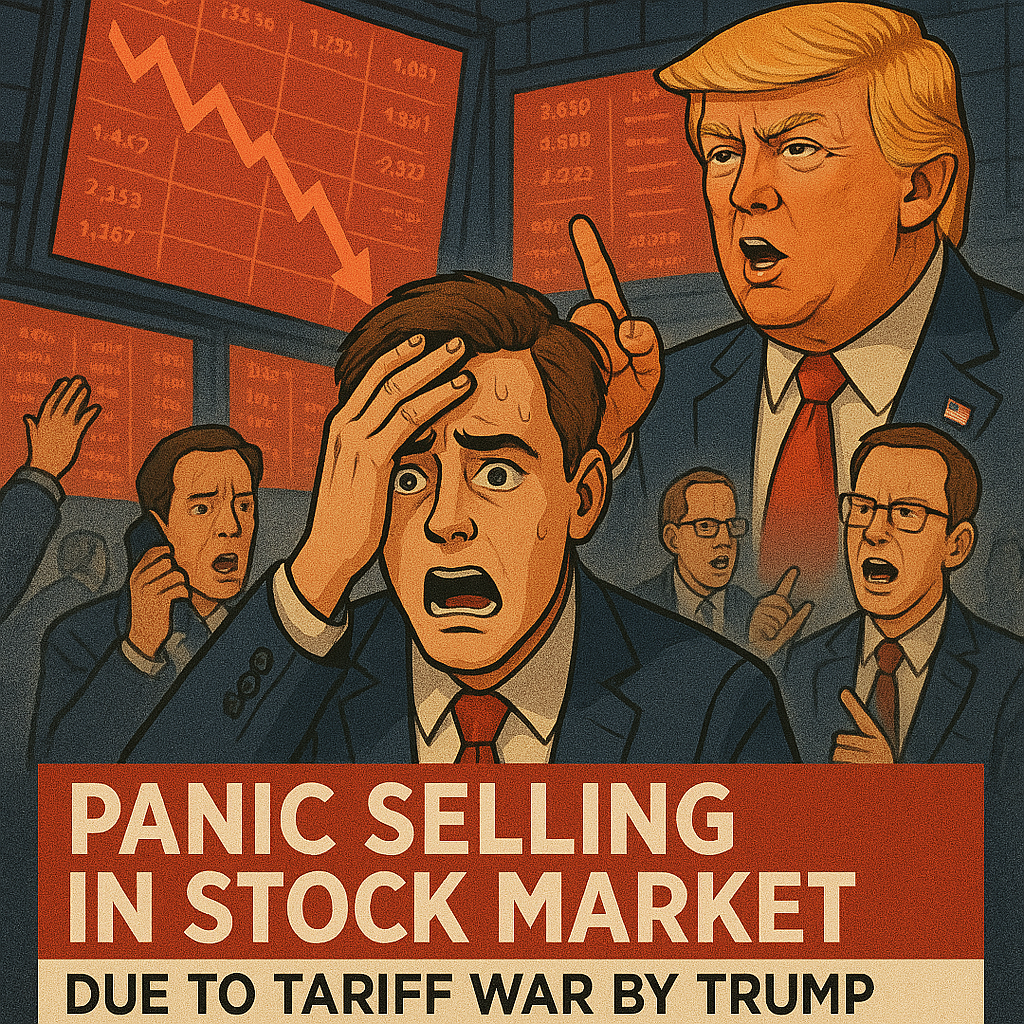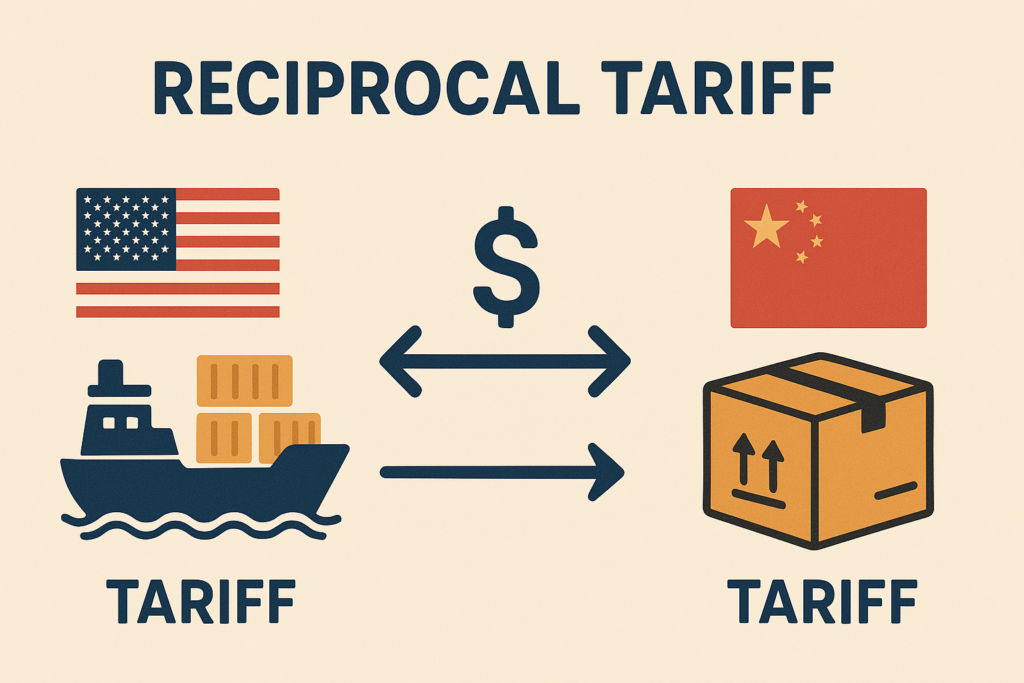
The reciprocal/ retaliatory tariffs by Donald Trump didn’t only upset the U.S. and China—they remapped global trade patterns. The world watched with bated breath as these policies spread, showcasing the strength of economic choices to shape international relations, markets, and global stability. With the stock market plummeting because of the effect of tariffs, it is only natural that this question should come up in the mind that
- Will the stock market never grow again?
- Did Trump not understand what effect the tariffs would have on the economy?
- Is it wise to sell all the stocks and mutual funds?
The answer to these question is just ‘No’. Nobody can deny the fact that the tariffs interrupted the global supply chain, leading to higher costs for businesses and consumers. Exports-reliant countries such as China, Mexico, and the European Union were affected economically. This also resulted in retaliatory tariffs, heightening tensions not only with China but with allies as well such as Canada and the EU. Nevertheless, long term, the stock market has done well in the past, and most people expect it to do so in the future. Before going to the depth of this topic, at first, it would be helpful to know what a reciprocal tariff is.
Reciprocal Tariff:
A reciprocal tariff is a situation where two or more nations put tariffs (taxes on foreign goods) on each other’s products in retaliation for the same. In essence, it’s a trade retaliation—if one nation puts tariffs, the retaliating nation puts tariffs on the first nation’s products.

How Reciprocal Tariff Works:
Suppose, country-A levies tariffs on some of the goods imported from Country-B to shield its local industries. Country-B retaliates by levying tariffs on goods imported from Country-A. This sequence can expedite, leading to trade wars where both parties keep raising tariffs, affecting businesses and consumers.
Short-Term Impact of Tariffs on stock market:
- Market Panic: Tariff news can result in panic selling and significant drops in stock prices. This is typically caused by concern about higher costs for companies, decreased consumer purchases, and strained foreign relations.
- Volatility: Stocks of firms that depend on international supply chains or global markets—like technology titans, producers, and export-oriented companies—tend to be hit the hardest.
- Temporary Nature: Historically, markets overreact to tariff news. After the initial shock passes, investors start thinking about the long-term fundamentals of businesses and the overall economy.
Why panic selling of stocks/ mutual funds is not an intelligent choice for a Long-Term Investor:
- Emotional Decisions: Panic selling of stocks/ mutual funds is an emotional decision, not a rational one. Long-term investors gain from remaining calm and adhering to their investment plan.
- Missed Opportunities: Stock Market downturns tend to create buying opportunities in stocks/ mutual funds. The stocks/ mutual funds, which were earlier in a state of overvaluation, can become desirable at reduced prices, enabling investors to make their portfolios even stronger.
- Recovery Potential: Markets are ever-resilient. Once the tariff shock is felt initially, companies learn, and economies learn to adapt. Eventually, the markets tend to rebound, and long-term investors profit from this recovery.
Transforming Tariff-induced volatility into an opportunity:
- Diversification: Dips in the Stock market can be utilized to diversify your portfolio across geographies and sectors.
- Value Investing: Invest in companies that are fundamentally sound but temporarily undervalued because of market responses.
- Long-Term Focus: Keep in mind that short-term occurrences such as tariffs are mere blips in the bigger picture of economic growth and market cycles.
Though the stock market had bearish trends at the peak of the tariff wars, such impacts were temporary or for short period, as the government of America and other countries are very well known about the bad effects of the tariff/ trade war on world economy and they will definitely resolve this issue on priority. Further, the stock markets eventually adapted, and certain industries even discovered new growth avenues as firms diversified supply chains and ventured into new markets. Long-term investors who stick to a disciplined strategy, do not panic sell, and see volatility as a chance to create a solid portfolio are the ones who will achieve financial success. Thus, panic selling of stocks/ mutual funds is not an intelligent choice for a Long-Term Investor.
Disclaimer: All contents of this post are for educational purposes only and there is no buy sell recommendation. Investing and trading in stocks or other instruments are subject to market risk, please consult your financial advisor before making any investment decision.